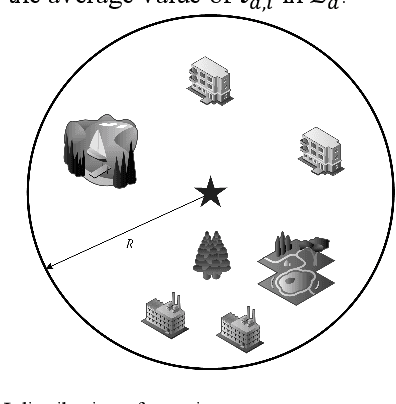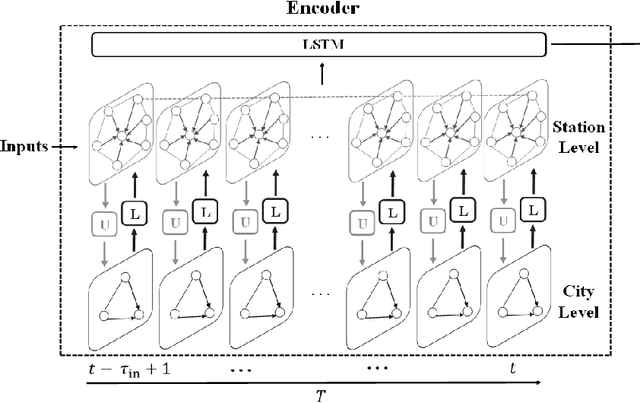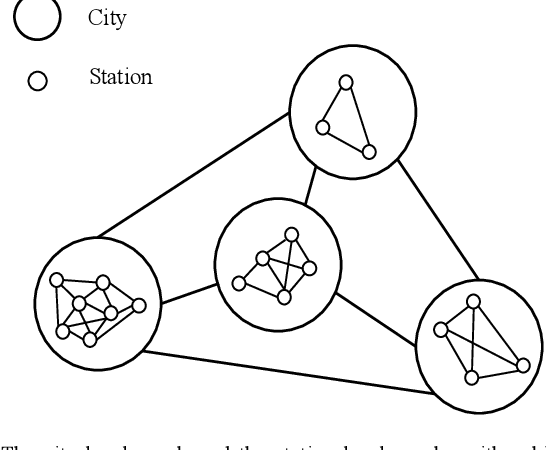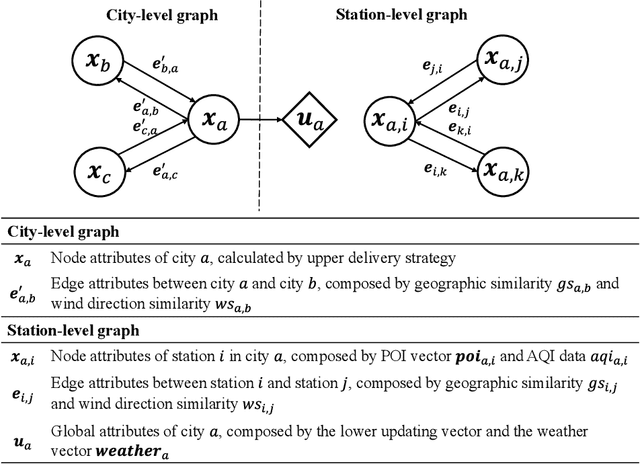Sanjian Chen
HighAir: A Hierarchical Graph Neural Network-Based Air Quality Forecasting Method
Jan 12, 2021



Abstract:Accurately forecasting air quality is critical to protecting general public from lung and heart diseases. This is a challenging task due to the complicated interactions among distinct pollution sources and various other influencing factors. Existing air quality forecasting methods cannot effectively model the diffusion processes of air pollutants between cities and monitoring stations, which may suddenly deteriorate the air quality of a region. In this paper, we propose HighAir, i.e., a hierarchical graph neural network-based air quality forecasting method, which adopts an encoder-decoder architecture and considers complex air quality influencing factors, e.g., weather and land usage. Specifically, we construct a city-level graph and station-level graphs from a hierarchical perspective, which can consider city-level and station-level patterns, respectively. We design two strategies, i.e., upper delivery and lower updating, to implement the inter-level interactions, and introduce message passing mechanism to implement the intra-level interactions. We dynamically adjust edge weights based on wind direction to model the correlations between dynamic factors and air quality. We compare HighAir with the state-of-the-art air quality forecasting methods on the dataset of Yangtze River Delta city group, which covers 10 major cities within 61,500 km2. The experimental results show that HighAir significantly outperforms other methods.
 Add to Chrome
Add to Chrome Add to Firefox
Add to Firefox Add to Edge
Add to Edge